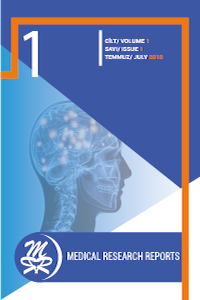
INTRODUCTION Enuresis nocturna (EN) is one of the most unpleasant problem in childhood. Functional problems thought to be the majority part of etiology instead of structural, medical or neurological problems. Psychological disorders, such as attention deficit hyperactivity disorder, oppositional defiant disorder or depression may be accompanying with enuresis nocturna. Internalising problems such as separation anxiety, social anxiety, specific phobia, generalised anxiety, depression, conduct disorders and attention deficit hyperactivity disorder can accompany with EN. In this study, we aimed to investigate the sleep habits and psychological disturbances in children with EN. METHODS The fourty children (27 boys and 13 girls) with EN who had been admitted to Pediatrics and Urology outpatients departments and 113 (54 boys and 58 girls) age-matched healthy controls are comprised fort he study. Participants received ‘Strengths and Difficulties Questionnaire’ (SDQ), and ‘Children’s Sleep Habits Questionnaire’ (CSHQ). RESULTS The frequency of sleep problems was 59% and 85% in the control and in enuretic groups. The total problem score was significantly higher in the EN group according to the scores of the SDQ parent-report form. The EN groups with regard to bedtime resistance, sleep-anxiety, night-waking, parasomnias, breathing-related problems and daytime sleepiness showed significantly higher scores in CSHQ comparing to control group. CONCLUSION The children with EN need to be evaluated in regarding to sleep and psychological aspect.

| Relevant Articles | Author | # |
|---|
| Article | Author | # |
|---|